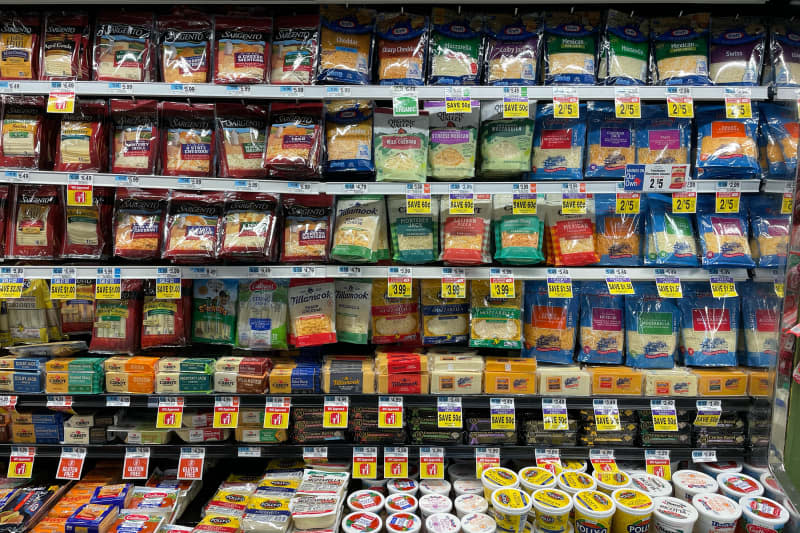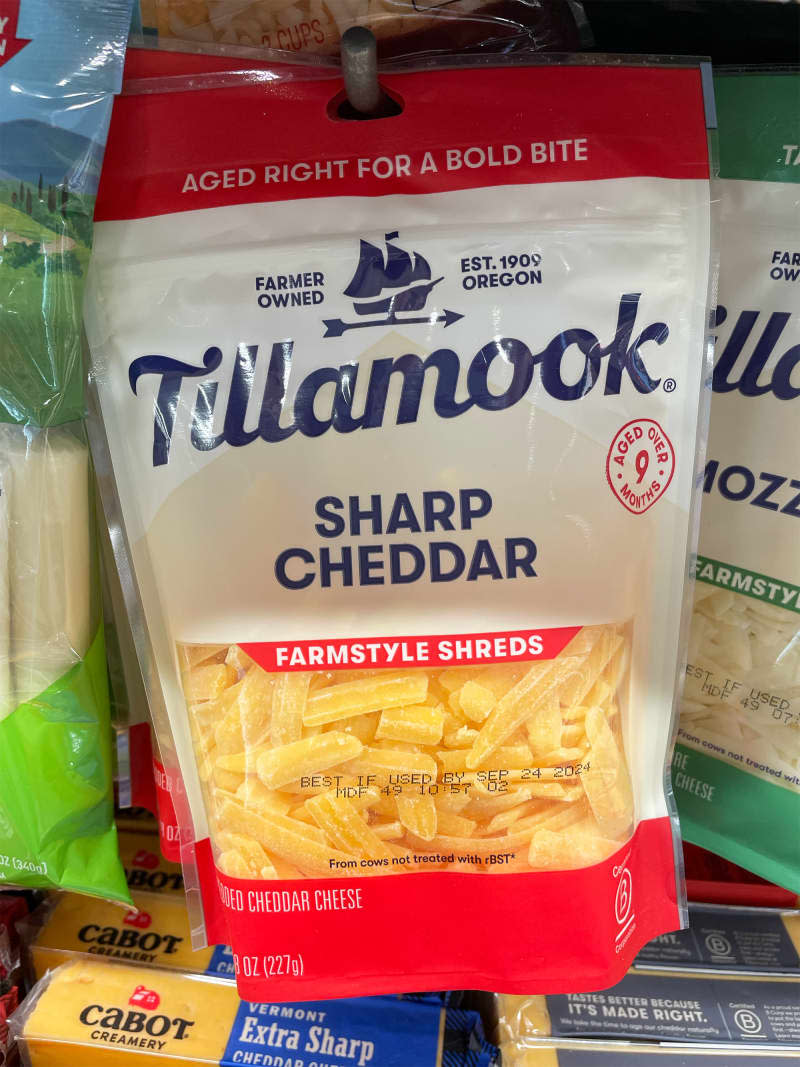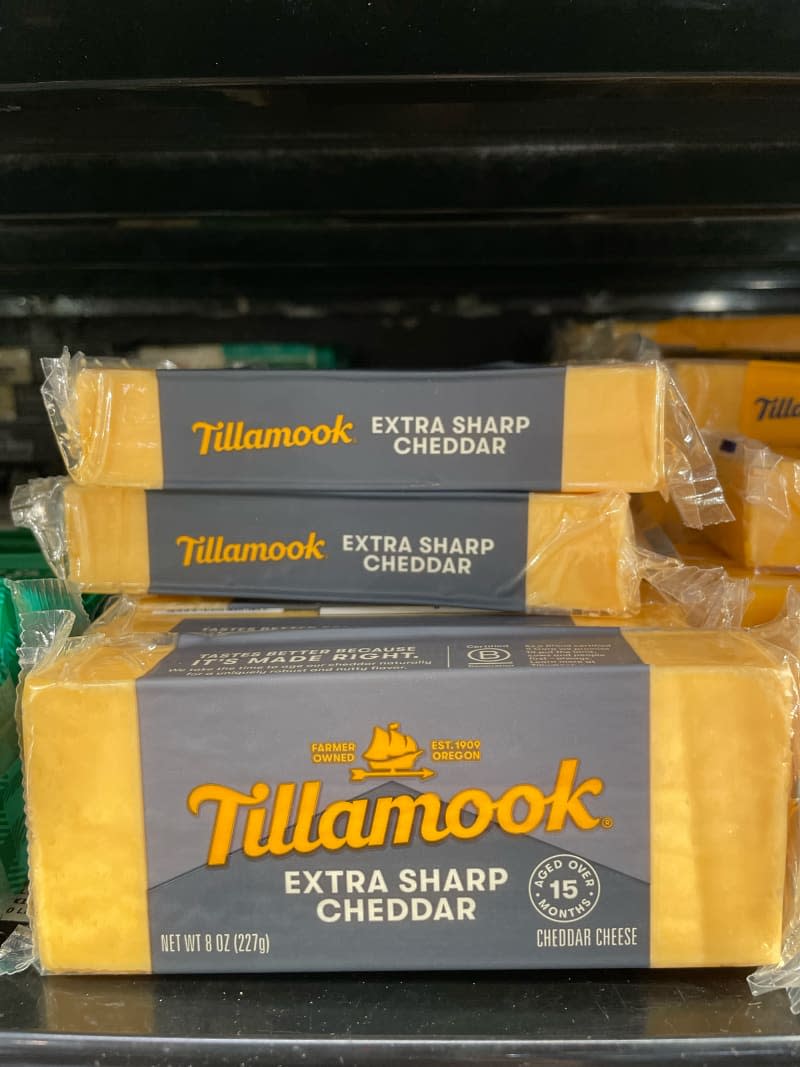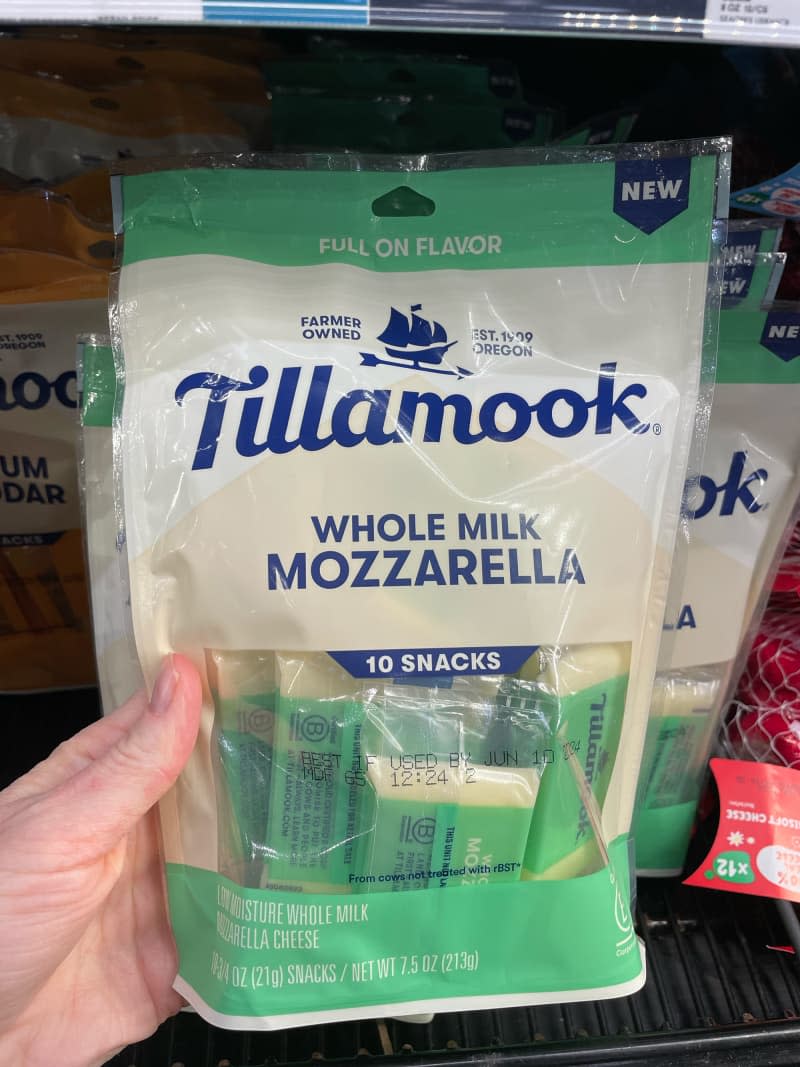Why I Stopped Buying Cheddar at the Grocery Store — Except This One

Cheese is an everyday food for my family of four. We may go a day or two without meat, but I can’t remember the last time we went 24 hours without some kind of cheese. After watching the Netflix series You Are What You Eat, which followed a Stanford study of twins who were put on either plant-based or nutrient-dense omnivorous diets over the course of eight weeks, though, I started thinking more critically about my consumption of meat and dairy products.
These were messages I had heard before, but seeing the visual examples of the way factory farming harms animals, workers, and the environment was too much to ignore. Ultimately, I decided to reduce my consumption of animal products and focus on finding the best sourcing possible, personally vetting the farms and businesses that produce whatever goes into my kitchen to create what I call “an honest diet.”
There are a few excellent local cheesemakers, like Caromont Farm and Ballerino Creamery, here in Virginia. I truly love supporting them and enjoying their artisanal cheeses, but I knew I’d need to find a dairy company that had consistent, high-quality products readily available to me all the time if I was going to make this honest diet work. That’s when I started noticing a bunch of Tillamook products popping up at Kroger and Target. I decided to research the company and eventually made the switch to Tillamook for my family’s extensive cheese (and ice cream) needs.

What’s So Great About Tillamook?
Taste is always going to be a very important factor for me when it comes to food choices. Tillamook’s farmstyle thick-cut shredded cheddar is a workhorse of a cheese that melts like a dream and tastes amazing in my morning breakfast sandwiches, my kids’ quesadillas, and homemade mac and cheese. I also love its extra-sharp aged cheddars, which are nutty with little cheese crystals — ideal for cheese plates. Plus, Tillamook’s individually wrapped cheese squares are the first thing I reach for when I start feeling hangry, and their magic works on me instantaneously.
While cheese is the hero of our household, ice cream is right up there with our most beloved foods, and luckily Tillamook makes that too (and in some of my family’s favorite flavors). The Oregon Strawberry ice cream sandwiches, with a crunchy waffle cone exterior thinly coated in chocolate so it stays crispy until the last bite, are my idea of a perfect dessert. My husband loves the Caramel Toffee Crunch ice cream, my kids clamor for the Chocolate Chip Cookie Dough and Banana Split flavors, and everyone loves (and fights over) the Dark Chocolate Cookies and Cream.

While taste is paramount, there’s more to this equation than just flavor. It was important to me to find a dairy brand that values things like cow comfort, environmental stewardship, and fair treatment for its workers. As a certified B Corp, Tillamook is in a unique position to uphold those values, and they are standards the brand takes very seriously. (You can find the company’s six stewardship commitments on its website.)
“We just recertified as a B Corp, and our score increased to 94.1 points,” says Jocelyn Bridson, Tillamook’s director of environment and community impact. That certification means Tillamook is evaluated across five categories — governance, workers, community, the environment, and customers. “It’s a continuation of what we were doing already, but it definitely took a lot of extra steps to get that B Corp certification … it’s a way for us to communicate [our standards] to consumers, especially on the East Coast who didn’t grow up here in Oregon,” where the company was founded.
In her role at Tillamook, Bridson works to reduce water, waste, and energy output throughout the entire facility and oversees programming around food security, healthy communities, and agricultural advocacy. She also works on Tillamooks’ Climate Action Plan, which has set a goal to reach net zero greenhouse gas emissions by 2050, with an interim goal to reduce emissions by 30% by 2030. While it’s unclear how close the team is to reaching/hitting those numbers, the company is making progress. “We converted all of our diesel trucks to using a renewable diesel, which is a fuel that has over 60% fewer emissions per gallon,” says Bridson.

Raising livestock creates greenhouse gas emissions that speed the effects of global warming. Specifically, cattle are the number-one agricultural source of greenhouse gas emissions, contributing 31% of total methane emissions produced from human activities in the U.S. I was curious how this squares with Tillamook’s Climate Action Plan.
Tillamook categorizes its emissions into two types: those directly from its facility and fleet of vehicles, as well as indirect emissions (both from electricity and steam, and the various elements of the supply chain, including farmers, co-packers, and transportation). The latter is where Tillamook hopes to make the most immediate impact. To that end, the company is encouraging farmers to use biodigesters, which convert manure into energy or fertilizer.
“We know that farmland is a massive opportunity for carbon sequestration in soils. Over 90% of our member farmers are now using cover crops for the winter, and that’s building soil carbon. It’s picking up the nutrients during the rainy winter, so they don’t run off or leach, and it’s protecting water quality.” Bridson emphasizes the circularity inherent in agriculture — animal waste goes back into the soil as fertilizer.
Thinking about animals in agriculture brought up another concern: Animal welfare. According to its charter, healthy cows are one of Tillamooks’ six key stakeholders. “We let farmer owners do what works best for them,” says Dr. Kate Lott DVM, directory of farm engagement. “And then we manage the standards through the FARM Program [or Farmers Assuring Responsible Management].” That program sends evaluators to each farm to conduct second-party evaluations to identify weaknesses and areas for improvement related to animal welfare.
Through the FARM Program, Tillamook is able to ensure that farmers are providing adequate training for their workers, understanding cow needs, and creating safe spaces for cows to rest (which they do for 12 to 14 hours a day). Lott spends her days traveling across Oregon, providing ongoing support to farmers and sending milk samples to Tillamook’s laboratory for analysis.
Bridson points out that, for all of its progress in these areas, Tillamook still “can do better.” That message really resonates with me — my honest diet isn’t “perfect” either, but it’s better, and that feels pretty good.
Buy: Tillamook Farmstyle Sharp Cheddar Shredded Cheese, $4.29 for 8 ounces at Target
Have you made any grocery swaps recently? Tell us about it in the comments below.

